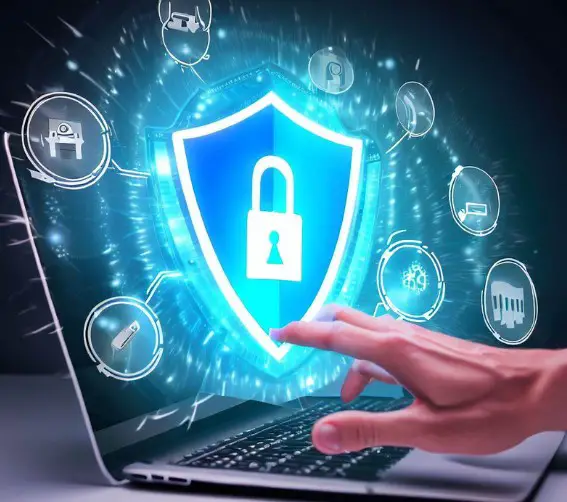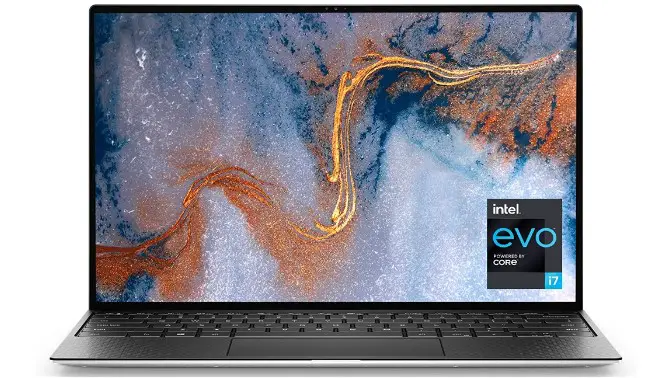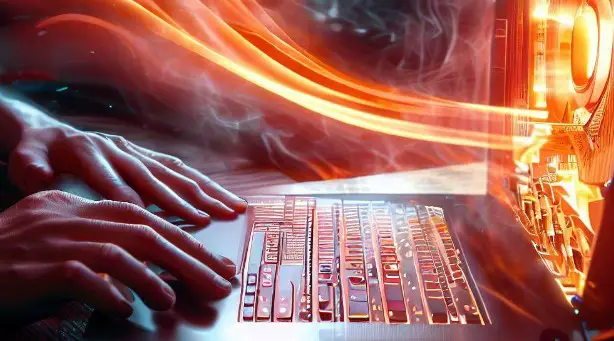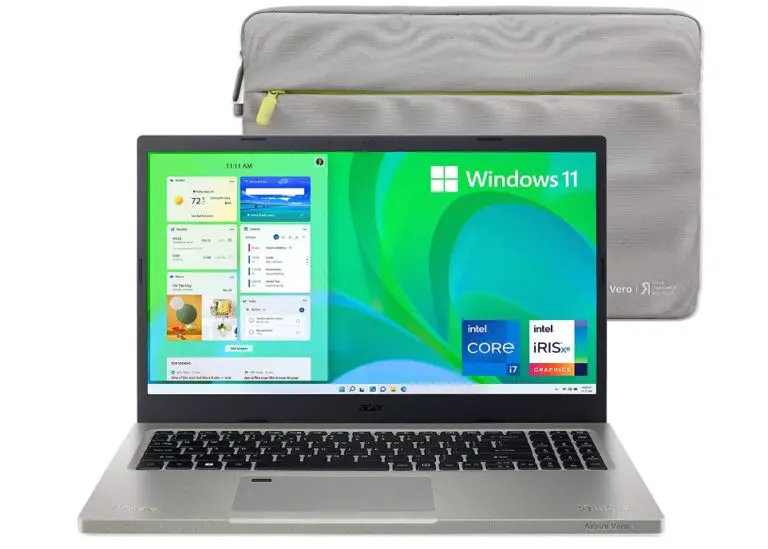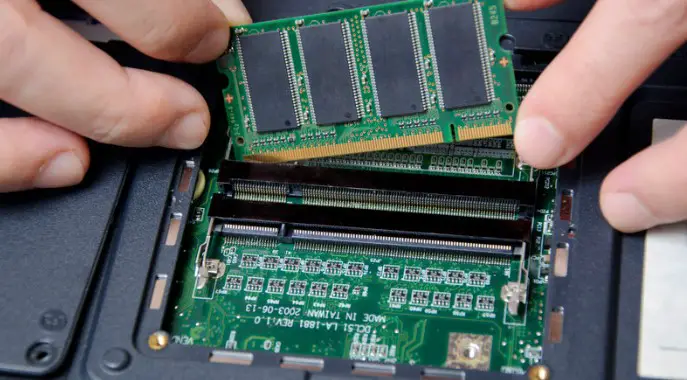How To Protect Your Laptop From Malware And Viruses
The ever-increasing use of laptops in our daily lives has led to a rise in the number of malware and virus attacks. Malware and viruses are malicious software that can steal data, corrupt files, and even take control of your computer without your knowledge. Protecting your laptop from such threats is essential to ensure the safety of your personal information and prevent any financial loss.
As a cybersecurity specialist, I have seen countless cases where users neglect basic security measures that could have prevented these attacks.
In this article, we will discuss various methods to safeguard your laptop against malware and viruses. We understand that technology can be overwhelming for most people, so we will provide you with easy-to-follow steps that will help protect your device from these digital predators.
Our goal is to empower you with the necessary knowledge to keep yourself safe online and give you a sense of belonging to a community that values cybersecurity awareness.
Understanding Malware And Viruses
Malware and viruses are two of the most significant threats to any device connected to the internet. Their impact on devices can be devastating, ranging from data loss and system crashes to identity theft and financial fraud.
Malware is a general term used for malicious software designed to harm your device, while a virus is a specific type of malware that replicates itself by inserting its code into other programs.
Understanding these terms is crucial as it allows you to take preventative measures against them. Prevention measures include installing antivirus software and keeping it up-to-date, avoiding suspicious emails or links, being cautious when downloading files from untrusted sources, and regularly backing up important data.
By taking proactive steps towards preventing malware and viruses, one can ensure their laptop remains safe from cyberattacks.
In conclusion, understanding the importance of malware and virus prevention measures is essential in today’s digital age. With new strains of malware emerging every day, it has become necessary to stay alert and vigilant at all times. Implementing strong cybersecurity practices such as using reliable antivirus software and maintaining regular backups will go a long way in protecting your laptop from harmful attacks.
Recognizing Common Types Of Malware And Viruses
Malware and viruses can be detrimental to the health of your laptop, causing you significant financial losses, loss of data or privacy breach. As a cybersecurity specialist, one must have a basic understanding of how malware works and recognize common types of malware symptoms. Identifying these symptoms is the first step towards protecting your device from cyber threats.
The most common attack methods that hackers use for spreading malware include email phishing scams, malicious websites, social engineering tactics, infected files downloads, and USB drives. Phishing attacks are designed to trick users into providing sensitive information such as login credentials or credit card details through an apparently legitimate website or email attachment. Malicious websites contain code that automatically installs malware on your computer when visited by unsuspecting users. Social engineering involves manipulating people’s emotions to obtain confidential information or access their systems.
To identify malware symptoms on your laptop, look out for unusual behavior such as frequent pop-ups ads, slow loading time of web pages or software applications; unexplained changes in system settings; increased CPU usage; and crashes or freezes during boot-up. If you experience any of these issues, run anti-malware scanning software immediately to detect any potential threats lurking in your system.
Lastly, it is essential to keep your antivirus programs up-to-date with the latest virus definitions and security patches regularly. This will help protect against newer strains of malware that may bypass older versions of protection protocols.
By taking proactive measures like implementing proper security practices and tools while being vigilant about suspicious activities online ensures that you stay safe from cyber-attacks without compromising productivity.
Types of Common Malware:
- Adware
- Spyware
- Virus
Symptoms Associated with Malware Attacks:
- Popups
- Slow Performance
- Changes in System Settings
Preventing Malware Infections:
- Regular Software Updates
- Use Antivirus Programs
- Avoid Suspicious Websites
- Avoid Suspicious Websites and Downloads
Identifying Signs Of An Infected Laptop
Recognizing common types of malware and viruses is crucial to protecting your laptop from infection. However, even with this knowledge, it is still possible for your device to become infected. Therefore, identifying signs of an infected laptop is equally important in securing your digital life.
Common malware symptoms include:
- Slow performance
- Frequent crashes or freezes
- Unusual pop-ups or advertisements
- Changes to browser settings without permission
- Unexpected error messages
If you notice any of these issues on your laptop, it may be a sign that malware has infiltrated your system. Additionally, if you experience unauthorized access attempts or notice unfamiliar processes running in the background of your computer, it could also indicate a security breach.
Prevention is always better than cure when it comes to an infected laptop. To avoid such situations, there are several tips that you can follow:
- Install anti-virus software and keep it updated regularly
- Use firewalls as an added layer of protection
- Avoid clicking links or downloading attachments from unknown sources
- Keep all software up-to-date by installing updates as soon as they become available
- Back-up all data regularly so that if anything goes wrong with the device’s hard drive due to malware attacks or physical damage then at least some information will be safe elsewhere.
Overall, recognizing common types of malware and viruses coupled with identifying signs of infection can help protect laptops from potential harm caused by cybercriminals who want nothing more than access into our personal lives online. By following prevention tips mentioned above one can reduce their risks significantly thereby making their devices safer & secure against malicious attackers.
Backing Up Your Data
As a cybersecurity specialist, it’s crucial to understand the importance of remote backups. A backup is an essential tool that can help you recover from a malware or virus attack by restoring your computer to its previous state before the infection occurred.
It is critical to have a reliable and secure backup solution in place so that if something goes wrong with your laptop, you can easily restore all your data.
Choosing the right backup solution can be daunting as there are multiple options available in the market. The first step is to determine what kind of data you want to back up, how often do you need backups, and where would you like them stored.
Cloud-based solutions offer many benefits such as off-site storage, automatic backups without manual intervention, and easy accessibility from anywhere using any device connected to the internet.
In conclusion, having reliable and secure backups of your data should be a top priority for anyone who uses a laptop. With cyber threats evolving every day, it’s never been more important than now to ensure that your valuable information remains safe and accessible even after being affected by malware or viruses. Choose the right backup solution based on your needs and preferences, whether it’s cloud-based or local; make sure that it offers encryption features and frequent automated backups.
Installing And Updating Antivirus Software
While backing up your data is an essential step in protecting your laptop, it alone cannot guarantee immunity from malware and viruses. In fact, some people may think that their system is secure enough with just a backup when it isn’t.
The truth of the matter is that you need to be proactive in safeguarding your computer against these threats.
One effective measure to protect your laptop against malware and viruses is installing antivirus software. Antivirus programs are designed specifically to detect and remove malicious code from your system before they can cause any damage. However, not all antivirus software are created equal – some are more effective than others.
It’s important to do research on which antivirus options offer optimal protection for your device.
There are various free antivirus options available online, but their level of effectiveness may vary depending on the brand or version used. While opting for a free option might seem like a cost-effective solution, it’s crucial to remember that cybersecurity should never come at the expense of quality.
Investing in reliable and trusted antivirus software surely costs money, but the benefits far outweigh its price tag – especially when compared with the potential risks associated with having substandard protection on your laptop.
Configuring Firewall Settings
Configuring firewall settings is an essential step in protecting your laptop from malware and viruses. Firewalls are software or hardware-based security systems that monitor incoming and outgoing network traffic based on predetermined rules. By setting up a robust firewall, you can filter out unauthorized access to your computer system.
However, there are some security risks associated with configuring firewall settings incorrectly. If the settings are too restrictive, legitimate traffic may be blocked, hindering normal communication between devices. On the other hand, if the settings allow all traffic without proper filtering, attackers may exploit vulnerabilities and gain unauthorized access to your computer system.
Therefore, it is crucial to configure firewall settings correctly by understanding the nature of network traffic and identifying potential threats.
If you encounter any issues while configuring firewall settings, troubleshooting tips can help resolve them quickly. Common problems include misconfigured rules that block legitimate traffic or permit harmful content through the firewall. In such cases, reviewing logs or using diagnostic tools can help identify errors and fix them promptly. It is also recommended to keep backups of previous configurations so that you can revert changes if necessary.
In conclusion, configuring firewall settings is a critical aspect of securing your laptop against malware and viruses effectively. However, it requires careful consideration of potential security risks and adherence to best practices when making changes to default configurations. Troubleshooting skills can help resolve any issues encountered during configuration processes efficiently. Remember always to test new configurations thoroughly before deploying them into production environments for optimal protection of your device’s data integrity and confidentiality.
Enabling Automatic Updates For Software And Operating System
Enabling automatic updates for software and operating systems is like having an army of security guards that work tirelessly to protect your laptop from any potential threats. It’s a simple yet effective way of keeping your device secure against malware and viruses.
The benefits of enabling automatic updates are numerous. Firstly, it ensures that you always have the latest version of software installed on your laptop, which often includes essential security patches that address known vulnerabilities.
Secondly, it saves time as the updates occur automatically without requiring manual intervention.
Lastly, it reduces the risk of cyber-attacks penetrating your system by ensuring all areas are patched up-to-date.
On the other hand, not enabling automatic updates can expose your laptop to significant risks. Hackers and malicious actors continuously develop new exploits and techniques to exploit unpatched weaknesses in commonly used software applications.
If critical patches are not applied promptly or missed entirely, they leave you vulnerable to attacks such as ransomware or spyware infections. Ultimately, failing to enable automatic updates may lead to costly data breaches or even identity thefts.
Avoiding Suspicious Emails And Websites
Enabling automatic updates for your software and operating system is a crucial step in protecting your laptop from malware and viruses. However, it is not enough to rely solely on this measure. As cyber threats continue to evolve, it is essential to be proactive in safeguarding your computer against potential attacks.
Avoiding suspicious emails and websites is another critical aspect of keeping your laptop secure. Cybercriminals often use email phishing scams or malicious links to gain access to your personal information or install harmful software onto your device. To avoid falling victim to these tactics, never open attachments or click on links from unknown sources.
In addition to these measures, here are some tips for safe online banking and protecting your personal information online:
- Only use trusted websites when conducting financial transactions
- Do not share sensitive information such as passwords or social security numbers over unsecured networks
- Regularly monitor bank statements and credit reports for any unusual activity
- Use strong passwords that combine letters, numbers, and symbols
- Install reputable antivirus software and keep it up-to-date with the latest virus definitions
By following these best practices, you can significantly reduce the risk of having your laptop infected with malware or becoming a victim of identity theft. Remember always; prevention is better than cure.
Using Strong Passwords And Two-Factor Authentication
Password management is crucial in protecting your laptop from malware and viruses. A strong password will help keep hackers out of your system, but it’s important to remember that a password can never be completely foolproof.
It’s recommended to use unique passwords for each account you have and change them frequently.
Two-factor authentication implementation provides an extra layer of security on top of your password. This process involves verifying your identity through something you know (your password) and something you have (a physical device like a mobile phone). Two-factor authentication ensures that even if someone gains access to your password, they still won’t be able to gain access to your accounts without the second factor.
Overall, using strong passwords and implementing two-factor authentication are essential steps in protecting your laptop from malware and viruses. By taking these precautions, you’re reducing the risk of cyber-attacks and keeping sensitive information secure.
Remember to stay vigilant with password management and utilize all available security features provided by various applications or services used on your laptop.
Disabling Auto-Run For External Devices
Disabling auto-run for external devices is a highly recommended practice to protect your laptop from malware and viruses. Auto-run allows for the automatic execution of an application when the device is connected, which can be exploited by malicious software that may be embedded in the external device’s file system. By disabling this feature, you are taking away one potential entry point for cyber attackers.
However, it is important to note that there are some pros and cons associated with disabling auto-run. The primary advantage is that it mitigates the risk of infection through external storage devices like USB drives or CDs/DVDs. On the other hand, disabling auto-run may cause inconvenience to users who rely on such devices frequently as they will have to manually execute applications every time they plug them into their laptops.
If you find disabling auto-run inconvenient or impractical, alternative methods for protecting external devices include using anti-virus software with real-time scanning capabilities, regularly updating your operating system and installed applications, restricting administrative privileges on your computer to limit access to sensitive data and installing endpoint protection tools that prevent unauthorized access to peripheral ports via hardware firewalls.
It is essential to remember that no single method can completely eliminate threats posed by malware and viruses. Therefore, incorporating multiple strategies will provide optimal security against these types of attacks while minimizing any potential negative impact on productivity or user experience.
Removing Unused Software And Apps
To continue with securing your laptop from malware and viruses, it is important to keep your device free of unused software and apps. This practice not only frees up space but also eliminates any potential vulnerabilities that could be exploited by attackers.
One way to do this is through uninstalling bloatware – pre-installed programs that are often unnecessary for the average user. These programs can sometimes harbor security risks as they may contain hidden spyware or adware.
Another significant step in managing the health of your laptop is regulating startup programs. When you turn on your computer, there are numerous applications that open automatically which can slow down its performance and leave it vulnerable to attacks. By disabling unwanted start-up items, users can significantly reduce their system’s vulnerability while improving response time.
It’s crucial to note that these steps alone won’t guarantee complete protection against all possible threats since new forms of malware emerge every day. However, implementing them regularly will go a long way towards minimizing risk and increasing overall cybersecurity hygiene.
Take control over what runs on your machine, in order to prevent any uninvited guests from accessing sensitive data without consent or knowledge.
Keeping Your System Clean And Organized
As a cybersecurity specialist, it is essential to keep your laptop clean and organized to prevent malware and viruses from infiltrating your system. Here are some tips on how you can ensure that your device stays protected:
- Regular cleaning: Dust, debris, and other particles can accumulate over time, leading to clogged vents and fans which can cause overheating. Cleaning your laptop regularly with a soft cloth or brush will help remove these particles.
- Use reputable antivirus software: Installing reliable antivirus software can provide an extra layer of protection against malware and viruses. Ensure that the software has up-to-date virus definitions for maximum efficacy.
- Avoid unsolicited emails: Be cautious when opening emails from unknown sources as they may contain malicious links or attachments that can infect your computer.
- Keep software updated: Outdated software creates security loopholes in systems that hackers exploit to gain access to sensitive information. Regularly updating operating systems, applications, drivers and plugins minimizes such risks.
By keeping your laptop organized and cleaned regularly, you’ll not only protect against malware but also increase performance levels since all components of the system remain functional without obstruction or hindrance.
Don’t neglect this practice; make it part of your routine maintenance plan to enjoy optimal results at all times.
Using Virtual Private Network (Vpn)
Recent studies show that the use of Virtual Private Network (VPN) has significantly increased over the years. In 2020, VPN usage spiked by 124% globally due to remote work and online learning brought about by the COVID-19 pandemic.
With cybercriminals becoming more sophisticated in their methods, it is crucial for laptop users to take measures in securing their devices against malware and viruses. One way of doing this is through using a VPN.
The benefits of using a VPN for online privacy cannot be overstated. Firstly, it encrypts your internet connection, making it difficult for hackers or anyone else to intercept your data as you browse the web. Secondly, it masks your IP address, which gives you anonymity when browsing websites that may track your activities like advertisers or social media platforms. Lastly, using a VPN allows you to access geo-restricted content on streaming sites and other services that might not be available in your region.
Choosing the right VPN provider for your needs can seem daunting with so many options available in the market today. It is essential to consider factors such as speed, security protocols used, server locations, logging policies, and customer support when selecting a provider. Additionally, one should avoid free VPN services as they often have questionable practices such as selling user information or injecting ads into browsers to make money.
Incorporating a VPN into your laptop cybersecurity strategy is an effective way of protecting yourself from malware and viruses while also ensuring online privacy. By choosing the right provider based on your specific needs and being mindful of potential risks associated with certain providers’ services ensures peace of mind knowing that you are secure whenever connected to public Wi-Fi networks or working remotely at home or abroad.
Educating Yourself And Others On Cybersecurity Best Practices
Creating cybersecurity awareness is an essential step in protecting your laptop from malware and viruses. Cybersecurity threats are constantly evolving, and it’s critical to stay informed about the latest trends and best practices.
You can start by subscribing to trusted cybersecurity blogs or newsletters that will keep you up-to-date on the latest threats and how to protect yourself.
Another important aspect of creating cybersecurity awareness is educating children on online safety. Children often lack the knowledge and experience necessary to identify potential risks or suspicious behavior online.
Parents should take a proactive approach by teaching their children about safe browsing habits, password security, and avoiding suspicious websites or links. Additionally, installing parental control software can help parents monitor their children’s online activity and prevent them from accessing harmful content.
In conclusion, protecting your laptop from malware and viruses requires not only technical measures but also a commitment to education and awareness-building efforts. By staying informed about the latest cybersecurity threats and sharing this knowledge with others, we can work together towards a safer digital environment for everyone involved.
Remember: cybercrime affects us all, so let’s do our part in preventing it through continuous learning and vigilance.
Seeking Professional Help When Needed
Outsourcing cybersecurity can be a smart move for individuals who lack the technical expertise or time to effectively protect their laptops from malware and viruses. By enlisting the services of trustworthy IT professionals, one can gain access to specialized tools and knowledge that enhance security measures. These experts have experience in identifying vulnerabilities and deploying appropriate countermeasures.
The benefits of outsourcing cybersecurity include reduced risk exposure, proactive threat detection, swift response to incidents, and peace of mind knowing your laptop is protected by highly skilled professionals. Cybersecurity firms are equipped with advanced technology that detects malicious activity before it causes damage. They also provide ongoing monitoring and maintenance to ensure optimal protection against evolving threats.
Finding trustworthy IT professionals may seem daunting, but there are several ways to identify reputable service providers. One approach is to research reviews and testimonials about potential contractors. Another way is to ask for recommendations from colleagues or friends who have used similar services in the past.
It’s important to choose a firm that has relevant certifications and credentials as well as clear communication channels so you’re always informed about any updates or changes made to your system.
By seeking professional help when needed, you can safeguard your laptop against harmful attacks while enjoying other benefits such as increased productivity, improved performance, and overall better user experience. Don’t hesitate to invest in quality cybersecurity services; it could save you from costly damages down the road.
Frequently Asked Questions
Can I Use Multiple Antivirus Programs On My Laptop For Added Protection?
Antivirus compatibility is a crucial consideration for any cybersecurity specialist looking to protect their laptop from malware and viruses. While the idea of using multiple antivirus programs may seem like a logical way to bolster one’s defenses, it is not recommended.
In fact, attempting to run more than one antivirus program at the same time can lead to conflicts that could leave your system vulnerable. Instead, it is best to choose a single reliable antivirus program and keep it updated with the latest virus definitions.
Some recommended antivirus programs include Norton Antivirus, Kaspersky Anti-Virus, and Bitdefender Antivirus Plus. By taking these precautions, you can ensure that your laptop remains protected against cyber threats while also avoiding potential complications.
How Often Should I Update My Antivirus Software?
As a cybersecurity specialist, it is imperative to keep in mind that the world of malware and viruses evolves rapidly.
Thus, updating antivirus software should be done frequently- at least once a day or as soon as an update becomes available.
This ensures that the virus definition database remains current and protects against newly-discovered threats.
In choosing the best antivirus software for laptops, opt for one that offers real-time protection and has automatic updates enabled by default.
Remember, prevention is always better than cure; keeping your antivirus up-to-date not only secures your laptop but also reduces the risk of spreading infections to other devices on your network.
Can I Still Get Infected Even If I Have Antivirus Software Installed?
Antivirus software is a crucial tool in protecting your computer against malware and viruses. However, it is important to note that having an antivirus program installed does not guarantee complete protection from infections.
In fact, some free antivirus programs may have disadvantages such as limited features and weaker virus detection capabilities. Additionally, common signs of malware infection include slow system performance, frequent crashes, unusual pop-ups or error messages, and changes to the homepage or search engine settings without permission.
Therefore, it is recommended to invest in a reputable paid antivirus program and regularly update it for optimal protection against potential threats.
Is It Safe To Download And Install Software From The Internet?
When it comes to downloading and installing software from the internet, a risk assessment must be conducted before proceeding.
While some websites may offer legitimate downloads, others may contain malware or viruses that can infect your device.
It is important to ensure that you are only downloading from trusted sources and always read reviews or do research beforehand.
Additionally, utilizing VPN services can add an extra layer of security by encrypting your internet connection and masking your IP address.
As a cybersecurity specialist, it is crucial to stress the importance of cautious behavior when interacting with the internet to avoid potential threats to personal information and system integrity.
By staying vigilant and taking necessary precautions, individuals can better protect themselves from harm while using technology for various purposes.
Can Malware And Viruses Affect The Hardware Of My Laptop?
The hardware of a laptop is its physical components, including the motherboard and hard drive. Unfortunately, malware can indeed affect these parts of your device.
One example is the infamous Stuxnet worm, which targeted Iran’s nuclear program in 2010 by infecting industrial control systems. The worm caused physical damage to centrifuges by making them spin too fast or slow.
While this type of attack is not common for personal laptops, it demonstrates the potential danger that malware poses beyond stealing sensitive data or slowing down your computer. Therefore, prevention techniques for laptop security should include not only antivirus software but also regular backups and updates for all operating system and firmware patches to minimize vulnerabilities that hackers could exploit to access your machine’s hardware remotely.
Also read: Which Laptops are made in the USA
Conclusion
Laptops have become an essential part of our daily lives, and we rely on them for various tasks such as work, entertainment, and communication. However, the internet is a breeding ground for malware and viruses that can cause significant damage to your laptop.
In this article, we will provide some valuable tips on how you can protect your laptop from these threats.
Firstly, it’s important to note that using multiple antivirus programs on your laptop does not necessarily increase protection against malware and viruses. It may lead to conflicts between the software resulting in decreased performance or even system crashes. Therefore, choose one reliable antivirus program and keep it updated regularly.
Updating your antivirus software is crucial since new malware strains emerge every day. Regular updates ensure that the software has the latest virus definitions necessary to detect and remove any potentially harmful files.
Additionally, avoid downloading software from untrusted sources as they may harbor malicious code designed to infect your laptop with malware or viruses. For instance, in 2017 cybercriminals hacked into Equifax’s database stealing sensitive information like social security numbers of over 140 million people.
The hackers exploited a vulnerability in an open-source web framework used by Equifax’s online dispute portal which could have been avoided if they had kept their systems up-to-date.
In conclusion, protecting your laptop requires vigilance and caution when browsing the internet or downloading software. Employing simple measures such as updating antivirus software regularly helps safeguard against emerging threats while avoiding sketchy websites minimizes exposure to potential attacks. Ultimately staying informed about evolving cybersecurity challenges ensures that you make educated decisions concerning internet safety thereby keeping your laptop secure from malware and viruses.

